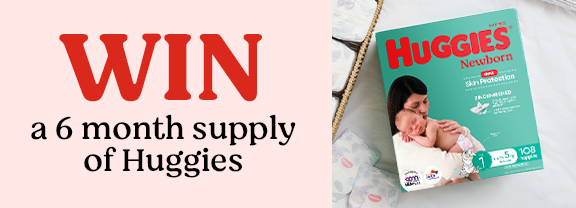How do I know when my baby is ready for solids?
Introducing baby solids is an important and exciting step in your growing baby’s health and development. But every baby is different so the timing of when they’re ready to make a start on baby solids can vary. Commonly it is around the 6 month mark as babies have a store of iron from birth which starts to run low at about this time. See our information on when to start your baby on solids for all the details.
Your baby may have already started showing you signs he’s keen on solids
You may find that your baby is developing an interest in what you’re eating and tries to get hold of things to put in his month. He may have just started to lose his ‘tongue pushing’ reflex which means he can begin to push food to the back of his mouth (rather than out). At around 6 months your bub’s weight should be about double what it was at birth. With a healthy weight gain and the ability to keep his head steady whilst sitting upright (with a little support from mum), your baby is on his way to his first taste of solid food. Getting started on baby solids has lots of helpful tips when first starting out.
Ready to get started?
Like all other changes to your baby’s routine, a gradual approach is best when introducing solids to their diet. Rather than cutting breast milk or formula out of your baby’s diet completely, introduce new foods in between or after milk feeds once a day to begin with. Breast milk or formula should remain as the main source of nutrients when introducing solids to your baby. Early nutrition has great information on starting your baby on solid foods.
Start with very small portions of soft, plain food like baby rice or cereal or pureed cooked vegetables or fruit. A good tip is to mix it in with breast milk or formula at first so your baby takes an interest in the food since the taste is familiar to them.
Food suggestions for bubs has a simple guide to suitable types of baby solids. Try introducing a new ingredient every 3 to 5 days and remember to look out for signs of any allergic reactions. If you have any concerns about your baby’s reaction to a particular food, talk to your doctor or nurse immediately. And keep your bub well hydrated throughout the day.
It may be a daunting process at the beginning as you try to figure out what food your baby likes and won’t reject. At first, babies tend to cough up food – a completely normal reaction to prevent them from choking.
Choose a time to introduce solid foods when you and your baby are both relaxed, like after their morning feed when your baby is happy and content. If he isn’t keen on a particular food, leave it for a few days and give it another go.
Keep your baby interested
Encourage your baby’s curiosity in food by letting him feel the food and mix it around – any of it that ends up in his mouth is a bonus!
Besides keeping the menu varied, giving your baby a variety of foods is an important step in introducing them to various sources of nutrients, as well as getting them used to different tastes and textures, even if they don’t end up eating it! Babies have a heightened sense of taste compared to adults, so there’s no need to add extra salt or sugar to encourage your baby to eat.
Learning to chew
Look out for signs and see if your baby has started making chewing motions as he starts to manage thicker mixtures.
With barely any teeth, your baby will find it hard to chew certain foods. So make sure the food is still nice and soft and baby friendly – remove any bits that the baby could potentially choke on like apple skin or seeds. Some baby food brands have different products available for each stage of early development. Baby foods make great options when you and your bub are out and about.
It can take some time and more than just a few goes for your baby to master their new found skill. For extra help with the task at hand, position a highchair in an easy-to-clean setting, or lay down newspaper to make the cleaning up simpler. Have a plastic dish with suction cups to keep the food on the highchair instead of the floor and have a supply of baby products like baby wipes and bibs handy as it’s bound to get messy!
As your baby becomes used to courser thicker textures and the motion of chewing and moving food around his mouth, start introducing other types of baby solids like finger foods. Start with bite-sized pieces and softer foods that are easier on their gums, like bread, banana and cooked soft vegetables. See Food suggestions for bubs for more finger food ideas.
For more information see Baby feeding or Baby Care
Last Published* May, 2024
*Please note that the published date may not be the same as the date that the content was created and that information above may have changed since.




















